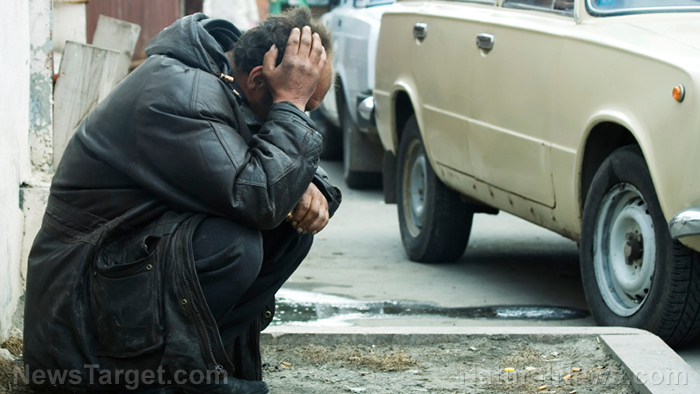
A national housing crisis could hit the U.S. as early as late August, as rent payments resume for many residents across the country. According to a think tank called the Aspen Institute, up to 40 million people are at risk of eviction in the coming months as residents struggle to make rent amid the economic fallout caused by the Wuhan coronavirus pandemic. In particular, financial hardship caused by COVID-19, which includes job and wage losses, and the loss of federal and state protections at the height of the pandemic are key drivers for the looming crisis.
“Without intervention, the housing crisis will result in significant harm to renters and property owners,” the authors wrote in their report.
Renters facing the reality of being kicked out
Renters living in urbanized areas are among those facing the possibility of eviction over non-payment of rent. In Clark County, Nevada – where the city of Las Vegas is located – around 10 percent of the population is at risk of eviction starting next month, according to a report by Las Vegas research group Guinn Center and the COVID-19 Eviction Defense Project in Denver.
Government funds have helped many renters pay rent and stay afloat during the pandemic, and a new state law lets courts delay eviction proceedings for up to 30 days to allow mediation between tenants and landlords. Despite these protections, renters in Las Vegas and other cities in the county are more likely to be walloped by the looming evictions crisis. The COVID-19 pandemic has kept revelers away from Las Vegas and the rest of southern Nevada, a region known for gambling, partying and networking en masse, often in close quarters. According to Nancy Brune, executive director of the Guinn Center, nearly half of all households in Clark County are renters, and over a third of them are unemployed. (Related: U.S. headed for “unprecedented housing crisis” as mass evictions loom.)
Bradford Cook Jr., an electronics technician at MGM Grand, is among the 249,700 renters struggling to pay rent in the county. Five months after getting furloughed by the pandemic, his manager emailed him to say that there were no plans to recall him to work. Cook, a Navy veteran, told the Las Vegas Review-Journal that he received around $3,000 a month in state and federal unemployment benefits at the height of the pandemic. Currently, he said that it’s down to around $1,300 a month. He already informed his property manager that he will probably move out soon, saying that it’s better to look for a place now than get slapped with an eviction notice later.
“Everything about our lives is pretty much up in the air right now,” Cook added.
A similar situation is unfurling in New York City, with 14,500 renters set to be evicted once the city’s eviction ban expires in October. According to data from the trade group Community Housing Improvement Program, around a quarter of the city’s 5.4 million tenants failed to make rent from April through June, which puts them at risk of eviction. In addition, more renters are expected to be unable to pay rent by September, as pandemic unemployment benefits have ended this month.
This means that renters like Marta Cortez, a restaurant manager who lost her job during the pandemic, will have to burn through what little savings she has left to keep her family afloat. Right now, she’s looking into the possibility of moving her family into a homeless shelter when she is ultimately evicted.
“I’m struggling to stay strong for us right now. The stress is killing me,” she added. Aside from losing her job, she’s also had to miss her father’s funeral in California, as well as pay for her son’s emergency surgery – all while relying on unemployment benefits to keep her afloat.
“People have to understand that we’re all dealing with a lot right now.”
The U.S. currently has a COVID-19 caseload of over 5.5 million, with over 174,200 deaths, according to data from Johns Hopkins University.
Sources include:
Please contact us for more information.





















